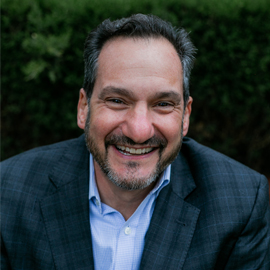
Matt Wasserman
Pre-Pandemic Committees
While recruiting board members during this time became more challenging, finding development and campaign committee members was even harder. With Americans prioritizing their families, health, and careers, volunteer work fell to the bottom. Our country’s approach to work has changed, becoming incredibly demanding in our time. Serving on a nonprofit board was not seen as quite the glamorous career stepping stone it used to be. And with a growing number of nonprofits to choose from, attaining these volunteers became more competitive.
The Pandemic’s Impact
Coming out of the pandemic when the world was still virtual, Americans were rethinking work (what they did day-to-day and their commitment to it) alongside their life’s priorities. Volunteer committees fell even further down the ladder of importance – without a central purpose, this work was no longer as fulfilling to most.
Development Committees Reimagined
Organizations needed to ask themselves how to reset what a volunteer committee accomplishes. How can this be a genuinely fulfilling experience where volunteers are engrained in their organization’s mission? This came from the general need to get interested or new people involved with an organization more deeply. Development committees started to play a role in stewardship, cultivation, case message development, and carrying out some parts of development plans. Members’ passion and commitment to the organization became more critical than their influence and connections.
Running With the Modern Volunteer Committee
The Right Committee Members
Development committees should always be a sub-committee of the board and be run by a board member. It is important that committee membership goes beyond board members and captures the diversity of your organization’s community: former board members, donors, someone your organization serves (think patient, client, alumni, student, etc.). We suggest limiting the number of board members on your committee to two. They already have enough on their plates.
Among our clients’ campaign committees, we ask them to think less about wealth and more about who they can bring in to be a part of this endeavor that would have a shared interest in the organization’s impact. Sharing a list of donors (without giving info), especially during the quiet campaign phase, can spark members’ ideas about who else they know and how they can increase the prospective donor’s relationship with the organization.
Setting Expectations
To all those looking to lead these groups: co-create with the committee and specify committee activities to keep work as clear as possible. With each new fiscal year or new committee variation, the expectations of this group must be communicated and even co-developed with the board and staff. Members need to stay focused on the key tasks the group needs to accomplish and steer clear of fundraising event-related activities (we suggest a separate, events-focused committee to manage this). As chair, you know your committee has limited time, and setting expectations in collaboration with committee members at the beginning of a new fiscal year is critical. For many, these expectations will center on making key introductions for your organization and or growing donor relationships./
Planning the Party, Teaching the Class, and Leading the Troops
We’re not going to lie, development and campaign committees are a lot of work for the chair. You need someone (NOT the development staff) with significant time to effectively run the meetings and keep members engaged throughout the year. They should be highly invested in the organization and its success. The chair needs to set the agendas, attend the majority of development committee meetings, and meet with each member one-on-one every few months to hear about their experience with the group.
The chair should also recruit new members each year, which is a large undertaking. The chair and the CEO can set the roles and responsibilities together, which should be shared with potential committee members when asked about their interest in joining. These expectations should be realistic and achievable for members who contribute a certain amount of time each month. And perhaps most importantly, you should cover these roles and responsibilities in the first meeting each year and gain committee buy-in for the right activities.
It Isn’t ALL Business...
Having fun and celebrating accomplishments keeps committee members engaged throughout the year and helps your members get to know and appreciate each other as like-minded people with a passion for your organization. A kick-off reception before the first meeting each year and other opportunities to network and celebrate success throughout the year help make things more enjoyable.
Each meeting could start with a brief check-in from a staff member or volunteer who can share details about a specific project they’re working on. Deep engagement in the organization can also extend beyond committee meeting times by giving members genuinely meaningful and hands-on experiences. If your organization is a school, this means attending events and even graduation. If your work is to solve food insecurity, there may be opportunities for members to be a part of food preparation for an afternoon. Even an opportunity every few months where members have an experiential session with part of your organization or at the end of a campaign can be a way to have a breath of fresh air.



